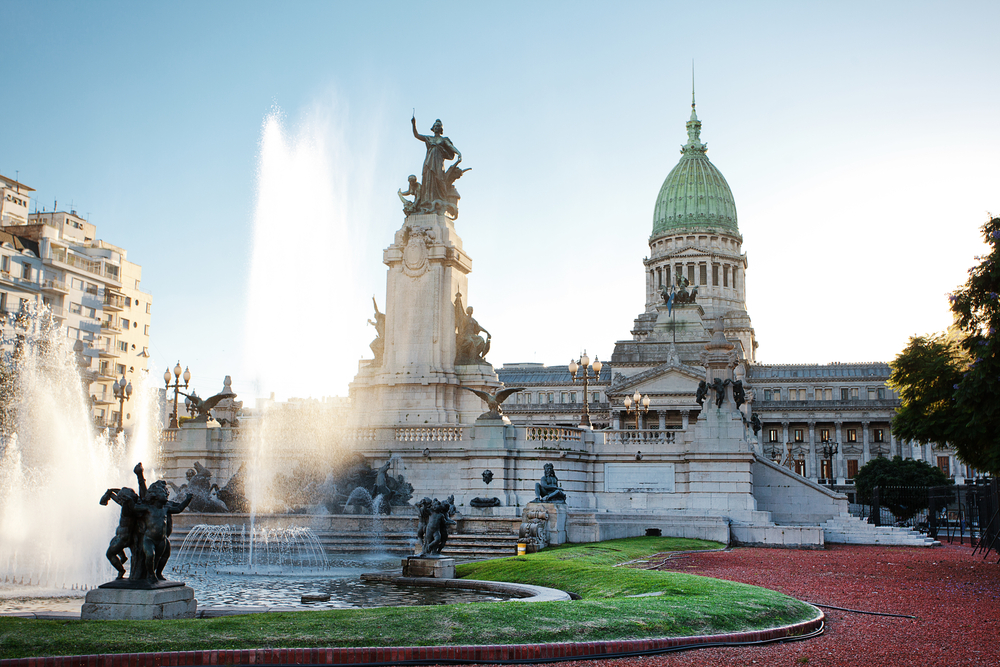Report from Buenos Aires: What a difference a new leader can make when even a slim majority of a country’s people decide they have had enough and choose change.
That’s what happened in the Argentine Republic last November, when Buenos Aires Mayor Mauricio Macri narrowly won as the 57th president of Argentina. Macri, a moderate conservative, is the first democratically-elected, nonradical or non-Peronista president since 1916.
Five recent days in Buenos Aires vindicated my long-time wish to visit this “Paris of South America,” a name it well deserves. With the invaluable assistance of a Spanish-speaking friend, I saw this great metropolis through the eyes of a local who loves and enjoys this city where fútbol (soccer) is an obsession, they dance the sexy tango in the streets and you meet friendly and beautiful porteños (Buenos Aires locals).

Argentina is a country making a stunning comeback. That remarkable national resurgence and recovery offers lessons for American voters in this election year.
The Argentine Republic is the second-largest country in Latin America, and it occupies most of the southern part of the continent. Like most countries in the area, it is a former Spanish colony. In 2010, it celebrated 200 years of independence from Spain.
Breathe in Buenos Aires
Buenos Aires in Spanish translates as “Good Airs.” It owes that name to the first Spanish settler, Pedro de Mendoza, who, in 1536, christened it Puerto Nuestra Señora Santa María del Buen Aire, Port of our Lady Saint Mary of the Good Wind.
But a political and brutal smog enveloped Argentina’s capital and the entire country for much of the last century. In 1918, Argentina was a prosperous, debt-free nation thriving with exports after World War I. A century later, it was an economic wreck.
Years of military dictatorships, corruption, debt and economic fascism ruined the country and its economy. People lost freedom, and lives were destroyed by controls on prices, capital, and repression of the media and every aspect of life. Dictatorial leaders kidnapped and murdered opponents, nationalized pensions, confiscated private assets, jailed the opposition and caused repeated currency crises. The government twice defaulted on billions in debts.
It was this mess that confronted President Macri when he took office six months ago.
In record time, with the grudging help of nervous politicians in the national congress, Macri has led a national turnaround that is producing stunning results, with an international rush to invest in the newly stable country. He removed crippling currency controls in place for four years, with a 30% devaluation of the bloated peso. In December, Macri brought much-needed free trade back to Argentina, removing taxes on exports of grain, beef and fish and abolished quotas on grain exports.
The local saying is that “Buenos Aires is Argentina,” and, with its national dominance, that is true.
But like any great city, Buenos Aires has its own universe, with a friendly portentous state of mind at its center. This is the hometown not just of Juan and Evita Peron, but also His Holiness, Pope Francis.
It is a town of lush green parks, broad boulevards, monuments and good dining. In Ricoleta, where I stayed, or in San Telmo’s antique shops and street fairs or at the Metropolitan Cathedral, the Plaza de Mayo and the Casa Rosada, everywhere you will discover an unusual charm, culture and an appeal unlike any other major city.
And a place where people, after a time of darkness, are adjusting to a renewed freedom.
Yours for liberty,
![]()
Bob Bauman JD
Chairman, Freedom Alliance



